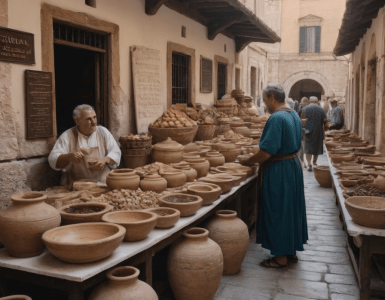History isn’t just dusty textbooks and boring dates; it’s a wild, chaotic family reunion where seemingly unrelated traditions and customs are actually distant cousins, sharing surprising DNA. Let’s dive into some unexpected links between historical events and cultural practices, unearthing some odd facts and little-known origins along the way.
The Potato’s Surprisingly Spicy Legacy
Think of potatoes: mashed, fried, baked – comforting staples. But their journey to our plates is a rollercoaster of conquest and famine. The potato, originally from the Andes, only arrived in Europe in the 16th century thanks to the Spanish conquistadors. Initially met with suspicion (and rightly so – some varieties are poisonous!), it gradually gained popularity, especially among the Irish peasantry. This seemingly simple crop became a cornerstone of Irish culture, shaping their diet and lifestyle. Fast forward to the 1840s, and the Irish Potato Famine, caused by potato blight, decimated the population and triggered mass emigration to the US, significantly impacting both Irish and American culture.
The unexpected twist? The famine’s impact reverberates even today. The Irish diaspora helped spread Irish-American culture across the nation, while the famine’s legacy continues to influence discussions on food security and global inequality.
Tea Time’s Turbulent Past
Afternoon tea, a quintessentially British tradition, has a complicated history intimately linked to global trade and empire. The British East India Company, a powerful corporation, held a monopoly on tea imports, shaping global tea production and trade routes for centuries. This wasn’t just about teacups and biscuits; it fueled colonial expansion, wars, and the rise of a globalized economy. The Opium Wars, a brutal conflict between Britain and China in the 19th century, stemmed partly from Britain’s desire to maintain its lucrative tea trade by pushing opium onto China – a grim counterpoint to the pleasant ritual of tea time.
Odd fact: The British initially tried to cultivate tea in India themselves, but it didn’t work well. It was only when they learned and adapted Chinese techniques that large-scale tea production in India took off.
The Unexpected Influence of the Silk Road
The Silk Road wasn’t just about silk; it was a massive cultural exchange highway spanning centuries. Ideas, religions, technologies, and diseases traveled along its routes, creating a fascinating blend of cultures. Buddhism spread from India to China along the Silk Road, shaping East Asian philosophy and art. Marco Polo’s journeys along the Silk Road introduced Europeans to the wonders of the East, fueling exploration and trade. But the road also served as a conduit for the bubonic plague, which, tragically, devastated populations across Eurasia.
Little-known fact: The Silk Road wasn’t one single road but a network of interconnected routes, varying in length and usage over time.
The Unexpected Origins of Carnival
Carnival, with its vibrant costumes, parades, and feasting, has roots in ancient Roman festivals and medieval traditions. Before Lent, a period of fasting and reflection in the Christian calendar, communities would indulge in a period of revelry. This pre-Lenten celebration involved feasts, processions, drinking and dancing. Over time, these celebrations morphed into the various Carnival celebrations we know today, in places like Brazil, Venice, and New Orleans, each with its own unique flavour. America's Forgotten Metropolis
Odd fact: The word “carnival” is derived from the Latin “carne vale,” meaning “farewell to the flesh,” referencing the period of fasting that followed.
The Surprisingly Global History of Paper
Paper, a seemingly ubiquitous material, has a fascinating history originating in ancient China. The invention of papermaking revolutionized communication and record-keeping, and its spread across the world offers a compelling case study in cultural exchange. The technology traveled along trade routes, reaching the Middle East, North Africa, and eventually Europe. The adoption of paper in Europe sparked a printing revolution, transforming knowledge dissemination and laying the groundwork for the Renaissance. What Are the Origins of the Olympic Games?
Little-known fact: The earliest known paper was made from hemp and mulberry tree bark. But many different sources were later used, including bamboo, cotton, and flax.
Conclusion
These are just a few examples of the surprising connections between historical events and cultural practices. By exploring these hidden links, we gain a richer understanding of our shared human history and the complex, interwoven tapestry of global culture. History isn’t a collection of isolated events but a continuous narrative, where each chapter builds upon the last, shaping the world we live in today.
So next time you enjoy a cup of tea, a plate of potatoes, or participate in a local festival, remember that these seemingly simple acts are deeply connected to a vast and fascinating history, a history with unexpected twists and turns that continue to surprise and enlighten.
























Add comment